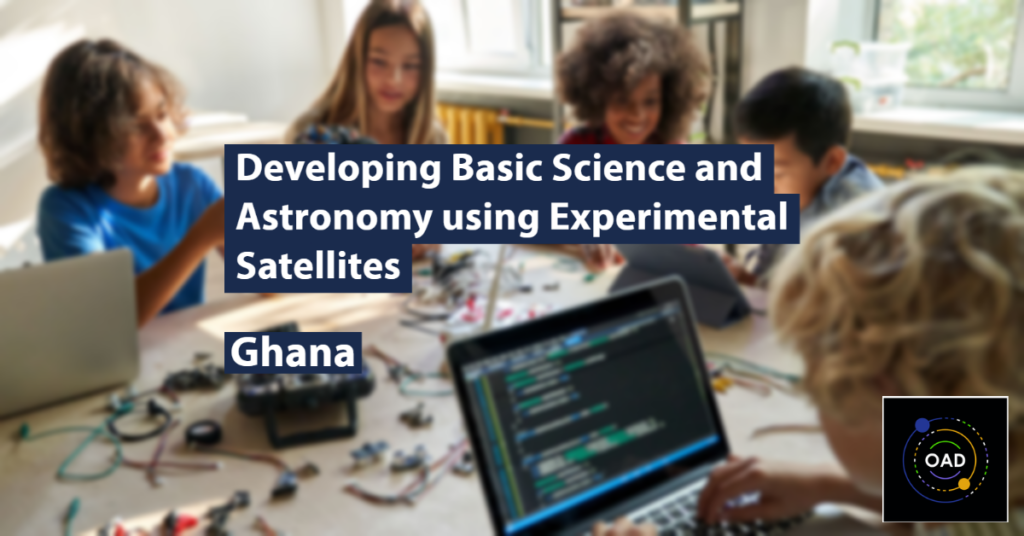DBSAES7 uses space-based techniques (actual space-based mission) to build & develop a sustainable approach to teaching & learning the basic sciences while developing hands-on skills, building capacity & human resource in Space science & Astronomy. Space engineering, instrumentation & learning, based on the experimental satellite (Cansat) design/mission concept, enables students to gain hands-on experience through a specific interdisciplinary project. Involving; mission defining, conceptual design, integration & testing, launching & actual system operation, i.e., experience from the whole Space project cycle & then participate in the Cansat/Rocketry competition with other students. One of the main advantage of our project is that its interdisciplinarity: combination of mathematics, physics, programming, telecommunications, aviation, rocketry, mechanics, etc. This project simulates a real, large, satellite and contains all the components as a real Satellite, but with limited complexity. These CanSat modules (which we have already built) can be used for real life applications such as remote mapping of agricultural lands, weather monitoring, obtain real satellite data etc. The key goal is to teach students how to build CanSats (along with essential skills such mathematics, coding, electronics, etc.) and use this to solve real life problems in their society. Having partnered with a local electronics company (to design microcontroller boards for CanSats); this way we are involving indigenous companies in Space development.Our experimental satellite project has proved to be an effective educational tool for involving students in technology and engineering as a practical complement to other fundamental subjects, such as science, mathematics, etc. Project based-learning is something that is missing from the school curriculum, with the CanSat project we hope to introduce this valuable concept and experience to students. Target Audience: Pre-tertiary Schools (5), 100 students.
Contact: Solomon Appekey appekeysolomon@gmail.com

